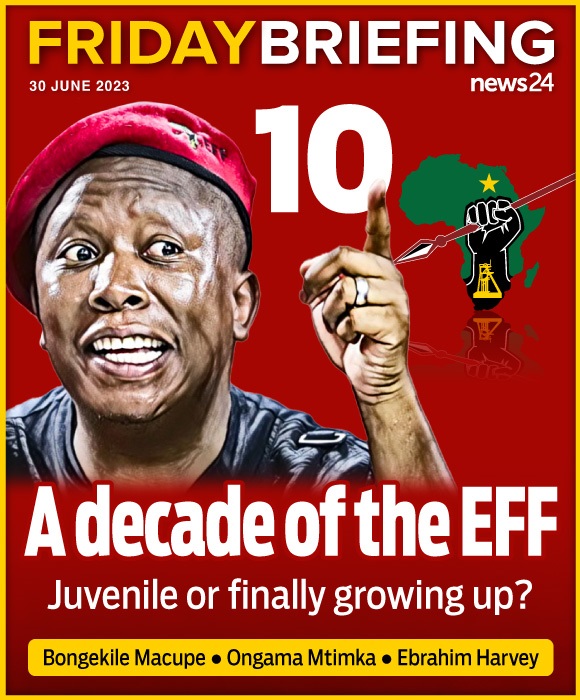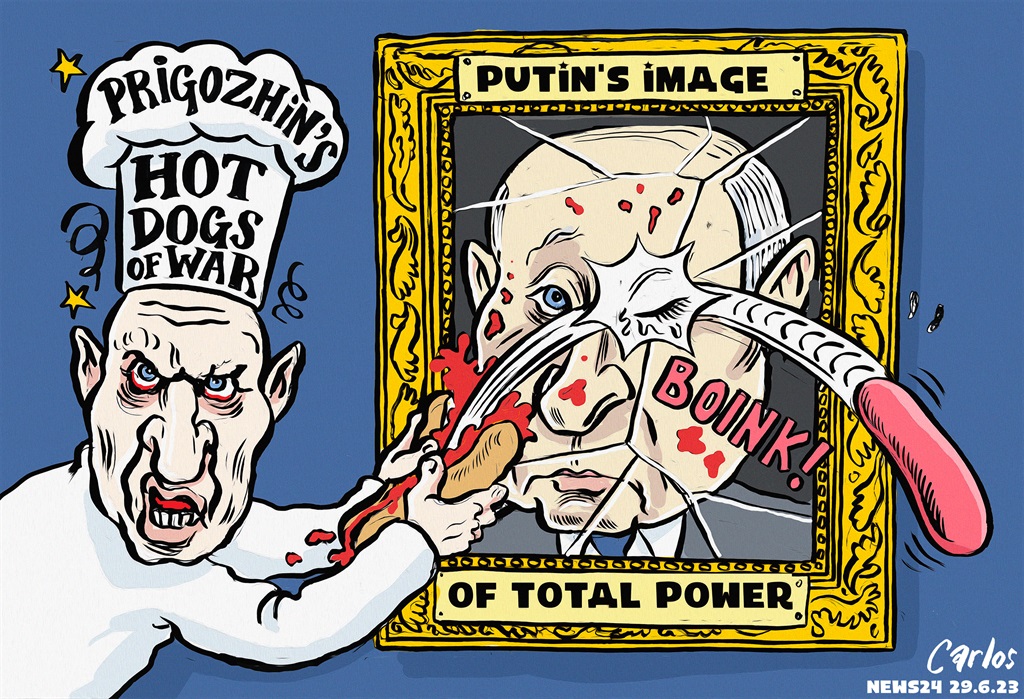A decade of the EFF: Juvenile or finally growing up?
“It is cold outside the ANC,” is a well-worn phrase that many political leaders, including Julius Malema, have spoken.
Malema, who hails from Seshego in Limpopo, clearly didn’t heed his own words and when he was leader of the ANC Youth League (ANCYL), he pushed the boundaries so much that he was expelled from the party for five years following a disciplinary hearing in 2012.
Instead of vanishing into obscurity, Malema immediately set to work with former ANCYL spokesperson Floyd Shivambu to set up a new party.
Using the tragedy of the Marikana massacre, Malema launched the Economic Freedom Fighters in 2013 at the koppies where, a year before, 34 miners had been shot and killed by police.
On its website, the EFF describes itself as a radical and militant economic emancipation movement with the aim of “bringing together revolutionary, militant activists, community-based organisations as well as lobby groups under the umbrella of the political party pursuing the struggle of economic emancipation”.
The party claims it draws its inspiration from the broad Marxist-Leninist tradition school of thought. Some analysts, though, have criticised the EFF, writing that it is made up of a hodgepodge of ideologies and the party often flip-flops on crucial issues.
Others have questioned what the EFF would be without Malema. As News24’s Pieter du Toit previously wrote, “The EFF is Malema, and Malema is the EFF.”
The party is also no stranger to allegations of corruption, violence and racism, which in some cases has acted as a damper on increasing the EFF’s support base.
Malema proved that it may not have been as cold outside as some thought. The party that is well known for engaging in public spectacle did well in 2014, when it contested its first general election, securing 6.35% of the vote. Five years later, it increased its share to 10.8%. In 2016’s local government elections, it won 8.31% of the vote, and in 2021 10.54% of support.
The party is potentially well-placed to excel in 2024, especially in the current economic climate where unemployment among the youth, its main support base, is increasing. But does it have what it takes, especially as indications point to voters unhappy with the ANC choosing to stay home rather than choosing to vote for a new party in the next election?
In this week’s Friday Briefing, we take a critical look at the EFF as it prepares to hold its 10th anniversary rally in July in Johannesburg. We examine what the party needs to do if it is going to have any chance of fulfilling Malema’s wish of one day being the country’s president.
We have submissions from News24’s deputy political editor Bongekile Macupe, University of Nelson Mandela’s Dr Ongama Mtimka, and News24’s columnist and analyst, Dr Ebrahim Harvey. The EFF was invited to write for us, but declined.
Hope you enjoy the read.
Best,
Vanessa Banton
Opinions editor.
10 years of the EFF: Some introspection needed
Bongekile Macupe writes that if the EFF is serious about being the “government-in-waiting” it needs to do some serious introspection about its politics over the past 10 years and figure out why people are not going out to vote for the party.
The EFF turns 10: In search of the next big swing
As the EFF celebrates 10 years of existence, it is searching for the next tactical manoeuvre that will give it a much bigger increase in its electoral fortunes than the odd one-to-three percent growth it has seen in recent elections, writes Ongama Mtimka.
The EFF a decade on: Politically confused and racially divisive
The EFF is a hodgepodge of conflicting ideological, political and programmatic currents. From the outset, they’ve used Marxist rhetoric to camouflage the fact that they are an essentially Africanist political party, which is steeped in the politics of race and racialism, argues Ebrahim Harvey.

